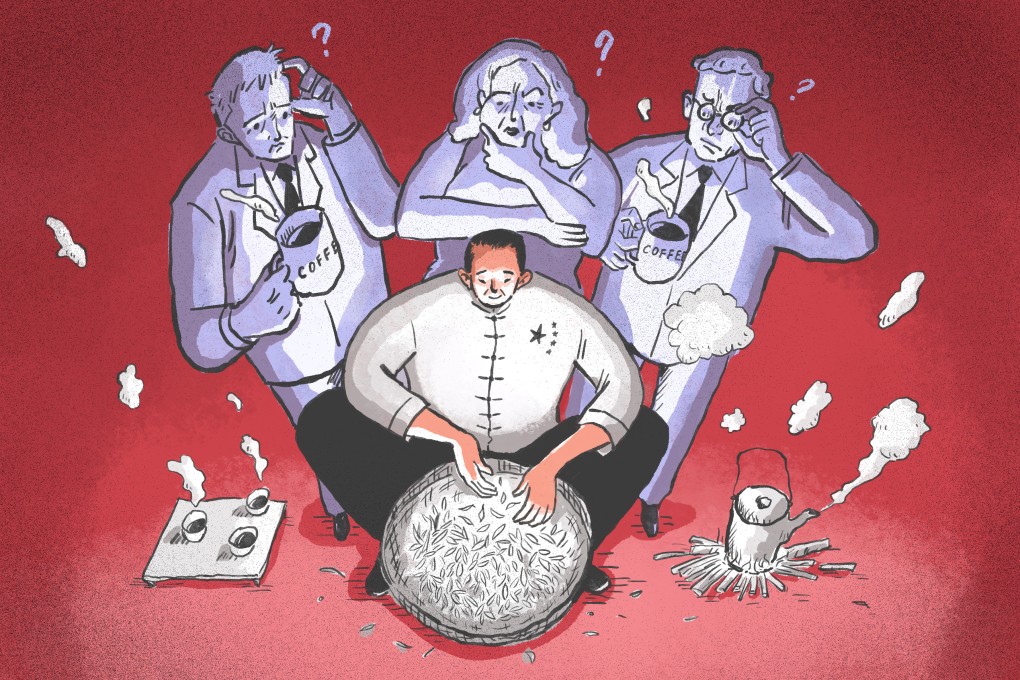Wolves and word choice: outsiders try to decode China’s 20th party congress
- Efforts to interpret Xi Jinping’s priorities focus on three main areas: foreign and military policy, party politics and economics
- Despite attempts to read the tea leaves, US analysts realise there won’t be ‘any simple or clear answers’

Will Beijing’s “Wolf Warrior” diplomats drop their aggressive stance, how much fiscal pressure are local Chinese governments under and will Xi Jinping turn his gaze abroad after securing an unprecedented third term? These are among the questions American analysts and former US officials are asking as they watch this week’s 20th party congress unfold.
Their quest for insights comes as US-China relations hit new lows, tensions mount over Taiwan and a bilateral tech war heats up. Even as coffee-drinking Washington tries to read Beijing’s political tea leaves, however, some question how much can be learned watching an opaque system from the outside.
“I’m very interested,” said Zack Cooper, an American Enterprise Institute fellow and former National Security Council official. “But I’m not sure that there are going to be any simple or clear answers.”
Most are focused on three main areas – foreign and military policy, party politics and economics – as is the rest of the world. The implications are huge as rhetoric intensifies between the two giants. In the latest salvo earlier this month, Washington strengthened restrictions on US and other Western technologies, wary that these will bolster Chinese military and economic might.
“We’ve got to be very sober about the fact we’re entering an engagement with a very different China,” said Ronald Kirk, who served as the US trade representative from 2009 to 2013.
In the foreign policy arena, analysts are focused on how committed Chinese Communist Party (CCP) leadership is to its military build-up and ideological divide with the West. They are also watching for any tactical easing of tensions with Washington; the first sign would likely be a November meeting between Xi and President Joe Biden at the Group of 20 meetings in Indonesia.
